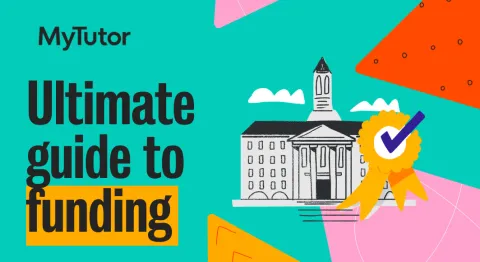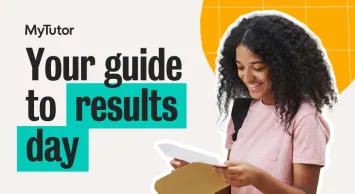Everything you need to know: Tuition funding for schools 2024/25
We know that funding can be a complicated issue for schools. And when it comes to funding tutoring, a common piece of feedback we hear is that it's hard to understand what's available and how to use it. That's where we're here to help!
Through our work with 1500+ schools throughout the UK, and a lot of digging through government guidance, we’ve compiled an ultimate guide to how schools can fund personalised tutoring for the pupils who need it most.
Tutoring is a highly effective intervention that supports learners and builds confidence. According to research from the Education Endowment Foundation (EEF), it's one of the most impactful and cost-effective ways to help improve your pupils' progress and bridge attainment gaps. It found that with targeted small-group tutoring, pupils made an additional 5 months of progress.
We understand that school budgets are stretched tight, so finding the right funding for tutoring is essential. Thankfully, there are multiple pots of funding available that thousands of schools across the country are already accessing. In this guide, we'll talk you through each of them and help you find the funding option that's right for your school.
Everything you need to know about using Pupil Premium to fund tuition
What is Pupil Premium?
Pupil Premium is a government grant provided to both state-funded primary and secondary schools to help improve educational outcomes for disadvantaged pupils.
What can Pupil Premium be spent on?
Pupil Premium can be spent on the following three areas:
- Teaching support, like professional development of staff
- Resolving non-academic barriers, like attendance, social and emotional well-being, and behaviour
- Targeted academic support, such as tutoring
How much is Pupil Premium per pupil in 2024/25?
For Financial Year 2024/25, Pupil Premium funds are set to increase by 1.4% to £1,050 per Secondary School pupil. The rate paid to schools for LAC pupils will increase 1.6% to £2,570.
Can Pupil Premium be used to cover online tutoring?
Absolutely!
As tutoring is recognised as a high-impact intervention by the Education Endowment Foundation, it can be funded through your Pupil Premium funds. 88% of our partner schools use this funding pot to subsidise some or all of their tutoring programmes.
One of the three spending areas that the Department for Education has set for Pupil Premium is targeted academic support, which covers tutoring. Many of our partner schools use a combination of Pupil Premium and other funds to cover tutoring for their pupils.
Everything you need to know about Local Authority (LA) funding for tutoring
Local Authorities receive specific funding to support disadvantaged students, particularly those in care. Below is an overview of local authority funding options that you can explore to support tutoring for disadvantaged students in your school.
Pupil Premium Plus (PP+)
Local Authorities receive Pupil Premium Plus funding to support children who are looked after.
- Eligibility: This funding is available for children who are currently in care or have been in care.
- Usage: Schools can use this funding to provide additional academic support, including tutoring, to help these students achieve better educational outcomes.
Local Authority grants for specific needs
Local Authorities may have specific grants aimed at supporting children with particular needs, including those with Special Educational Needs and Disabilities (SEND). These Grants can sometimes be used to fund additional tutoring.
- Example: Some Local Authorities provide extra funding for children with Education, Health and Care Plans (EHCPs) to support their learning needs.
Virtual School Heads (VSH)
Virtual School Heads are responsible for promoting the educational achievement of looked-after children. They manage the Pupil Premium Plus funding and decide how it can be best used to support the educational outcomes of these children.
- Usage: Schools can collaborate with Virtual School Heads to access funding for 1:1 tutoring, small group tutoring, and other educational interventions.
Local Authority discretionary grants
Some Local Authorities offer discretionary grants, which schools can apply for specific purposes, including support for disadvantaged students.
- Example: Schools can apply for discretionary grants to fund initiatives such as holiday tutoring programmes, after-school tutoring, or weekend learning support.
Additional staffing and resources
Local Authorities sometimes provide additional staffing and resources to schools to support disadvantaged students. This can include funding for:
- Learning Support Assistants (LSAs)
- Educational Psychologists
- Specialist tutors
How do I apply for Local Authority funding?
Applying for Local Authority funding can be done in a few steps:
- Contact Your Local Education Authority (LEA): Reach out to your LEA to understand the specific funding opportunities available and the application process.
- Work with Virtual School Heads: If you have looked-after children in your school, collaborate with the VSH to access PP+ funding.
- Submit detailed proposals: When applying for discretionary grants, ensure your proposals clearly outline the need, the intended use of funds, and the expected outcomes.
What happened to the National Tutoring Programme?
The National Tutoring Programme officially ended in August 2024, after 4 years of providing ring-fenced tuition funds to schools.
What was the National Tutoring Programme?
The National Tutoring Programme, or NTP, was a ring-fenced pot of money that schools could use to pay for tutoring from approved NTP Partners like us.
NTP funding was available to subsidise tuition from Key Stage 1 to Key Stage 4, and was intended to help narrow attainment gaps for disadvantaged pupils, as well as improve their academic performance. Over 4 years, it funded over 5 million tutoring courses for schools across the country!
What is a Tuition Partner?
Tuition Partners, like MyTutor, are external providers who’ve been approved by the NTP and DfE to deliver tuition via the programme.
These Tuition Partners have undergone a thorough quality assurance process to certify that they can deliver tutoring to a high standard.
MyTutor was an NTP Tuition Partner for 4 years running, since the National Tutoring Programme was first introduced. We've delivered over 4 million lessons to pupils in 1500+ schools through 1:1 and 3:1 tuition. You can read some of our partner school stories on our blog.
What happens if I don’t spend all of my NTP Grant?
Unfortunately, any NTP funding that went unused at the end of the academic year 23/24 will be recovered by the Education and Skills Funding Agency.
What will the NTP subsidy be next year?
There will be no NTP grant moving forward. However other funding pots can be used to fund tutoring that are more flexible and offer schools the ability to plan long-term programmes without worrying about future funding changes.
Everything you need to know about the 16-19 Tuition Fund
The 16-19 Tuition Fund, like the NTP, is no longer available to schools and Sixth Forms.
What was the 16-19 Tuition Fund?
As the name suggests, the 16-19 Tuition Fund was a ring-fenced fund available to schools, colleges, and other FE institutions to support disadvantaged pupils aged 16-19 through tutoring.
This pot of money was made available for the first time in 2020 to mitigate the impact of the pandemic on learning and has been available ever since.
What happens if I don’t spend all of my 16-19 Tuition Grant?
Much like with the National Tutoring Programme, it’s important to remember that any money left over from the 16-19 Tuition Grant at the end of the year will not carry over to the following year. Any unspent funding will be reclaimed.
Everything you need to know about Recovery Premium
The Recovery Premium is no longer available as of August 2024.
What was Recovery Premium?
Recovery Premium was a government funding programme set up to help support pupils whose education was impacted by the pandemic. It was originally introduced in 2021/22 with a pot of over £300 million, and this was increased to £1 billion for the 2022/23 and 2023/24 academic years.
There we have it, the most common methods used to fund tutoring. Used in combination, these funding pots can provide effective tutoring support for your pupils that boosts confidence, improves grades and closes attainment gaps.
If you’d like more advice on funding, get in touch with our team today and we can help you understand how to maximise your available funding for tutoring.
Get your free guide to funding tutoring here, which includes 100+ charity grants you can use for tutoring.



